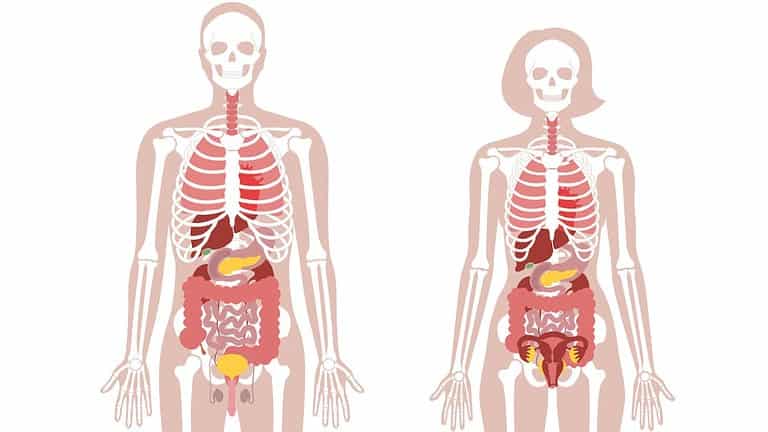Can You Change Your Gut Microbiome Profile?
Can you change your gut microbiome? It’s a question that has been asked by many people in the modern age of wellness and self-care. Yes, you can, but requires a complete understanding of the gut microbiota, how to modify it safely, and any potential risks of doing so.
In this article, we’ll explore these topics in depth, including how can you change your gut microbiome profile to achieve better health outcomes.
Table of Contents
What is the Gut Microbiome?
The human gut microbiome is an incredibly complex and dynamic ecosystem that exists within the digestive tract. It is made up of trillions of bacteria, viruses, fungi, and other microorganisms that are essential for our overall health and well-being.
The human gut microbiome has a significant role in controlling metabolic activities inside the body. It helps to break down complex carbohydrates into simpler molecules that can then be absorbed by our cells for energy production.
Additionally, it helps to synthesize essential vitamins (e.g., vitamin K2) which are not produced by humans and must be obtained from dietary sources.
Finally, a healthy gut microbiome is an important line of defense against pathogens as it produces antimicrobial compounds to prevent infection.
Our gut’s microbiome is a complex and dynamic system that plays an important role in human health. If you have poor gut health, it is possible to change your gut microbiome starting today and turn your system into a healthy gut flora.
How Can You Change Your Gut Microbiome?
Microorganisms such as bacteria and fungi inhabit the gastrointestinal tract to form a complex ecosystem known as the gut microbiome. Good gut bacteria in a healthy gut microbiome is a critical factor in maintaining digestion, nutrient absorption, immunity, and overall health.
One way to improve your overall health is by modifying your gut microbiomes. But how can you change your gut microbiome profile?
Diet and Nutrition
Eating a balanced diet with plenty of fiber-rich foods can help improve the diversity of good gut bacteria. Legumes, whole grains, fruits, and veggies can all provide dietary fiber which nourishes the gut flora.
Eating a plant-based diet is one of the best ways to improve your gut health. Plant-based diets are high in vitamins, minerals, antioxidants, and phytochemicals that support healthy digestion. Studies have found that vegetarian diets can reduce levels of disease-causing bacteria in people with obesity while also reducing body weight, inflammation, and cholesterol levels.
Additionally, these diets may be beneficial for the microbiome due to their higher content of non-digestible fibers that feed good bacteria in the gut.
When it comes to eating a plant-based diet there are several different approaches you can take. A vegan diet eliminates all animal products including dairy and eggs while still allowing for plant foods like fruits, vegetables, grains, legumes nuts, and seeds. You could also follow an ovo-vegetarian approach which includes eggs but no dairy or a lacto-vegetarian approach which includes dairy but no eggs.
It’s important to note that following any type of dietary restriction requires careful planning and preparation so you don’t miss out on essential nutrients like protein or iron. For example, if you eliminate meat from your meals, make sure to include other sources of protein such as beans, lentils, tofu, tempeh, nuts, seeds, and quinoa. And consider adding fortified foods such as soy milk, almond milk, and nutritional yeast.
Additionally, reducing sugar intake can reduce inflammation caused by unhealthy levels of bad bacteria in an intestinal microbiome.
Probiotics
Probiotics are live microorganisms found naturally or added to certain foods that promote a healthy microbiome when consumed regularly.
To increase your intake of probiotics, you can consume more probiotic-rich foods such as fermented vegetables like kimchi and sauerkraut, cultured dairy products like kefir and yogurt, miso soup, tempeh, pickles, kombucha tea, sourdough bread, and even certain types of chocolate.
Prebiotics
Prebiotics feeds the good bacteria already present in our digestive system. Eating prebiotic-rich foods can help improve digestion, reduce inflammation, and boost immunity.
To increase your daily prebiotic intake, start by adding a touch of extra fiber to each meal or snack – like having a banana with cereal or oatcakes with nut butter for breakfast, adding roasted chickpeas or lentils to salads for lunch, snacking on hummus dip and veggies, and topping dinner dishes off with sautéed mushrooms.
These kitchen hacks ensure that you meet your daily prebiotic requirement without too much effort!
Consuming both probiotics and prebiotics can help promote healthy gut flora and fortify the immune system.
Stress Management
Stress has been linked to changes in intestinal microbiome composition which could lead to poor metabolism or inflammation in the gut. Exercising regularly and practicing yoga or meditation have been shown to reduce the negative effects of stress on our gut microbiomes while also improving moods due to increased endorphin production.
Breastfeed for at Least 6 Months
The World Health Organization (WHO) recommends that mothers exclusively breastfeed their infants for the first 6 months of life. This is because breastfeeding provides babies with all the nutrients they need to grow and develop optimally, while also providing protection against certain illnesses.
Breastfeeding helps an infant develop a healthy microbiome, which may help protect against allergies, obesity, and other health conditions later in life.
Altering your diet and behavioral habits is one path toward achieving a balanced microbiome. Let’s look at more benefits of changing your gut microbiome profile.

(Source)
Benefits of Changing Your Gut Microbiome
Incorporating probiotics, prebiotics, and fiber into your diet can help to boost digestion and absorption of vital nutrients. And with better nutrient absorption, you can experience improved energy levels from the efficient uptake of vitamins and minerals from food sources.
Consuming fermented edibles or probiotic supplements has been linked to a decrease in inflammation within the body, potentially alleviating allergies and autoimmune issues such as eczema or psoriasis.
Beneficial bacteria also produce compounds that help protect against pathogens that could cause infection.
Microbiome research has revealed that a diverse microbiome correlates to more positive emotions, potentially due to the greater production of serotonin by beneficial bacteria in the digestive tract. Serotonin is the neurotransmitter responsible for regulating emotions so this could explain why some people feel happier after eating certain types of food.
Furthermore, microbiome research suggests that improving your gut health may even impact mental health and improve symptoms of anxiety and depression since they are often linked to imbalances in gut microbes.
Adopting a healthy microbiome diet is one way you can positively impact your gut, but there are other things you can do to improve your microbial diversity. Increase your physical activity, practice calming techniques, and pay attention to any medications you take since some may influence the proportion of good bacteria and bad bacteria in your gut.
The potential benefits of changing your gut microbiome are numerous, from improved digestion and nutrient absorption to better mood and mental health. Despite the potential benefits, caution should be taken when attempting to modify the delicate equilibrium of bacteria in the gut.
Risks of Changing Your Gut Microbiome
When it comes to altering the gut microbiome, there are a few risks that must be taken into consideration.
One major risk of altering the gut microbiome is an overgrowth of potentially harmful bacteria or yeast, which can cause various digestive issues. To avoid this, it’s important to take probiotics in moderation and consult with a healthcare professional before making any major dietary changes.
Drug interaction is another risk associated with changing your gut microbiome. For example, certain antibiotics may interfere with probiotic effectiveness, while some herbal supplements may interact with medications you’re already taking. It’s essential to check for potential drug interactions before adding anything new to your diet or supplement regimen.
Conclusion
Can you change your gut microbiome? You can change your gut microbiome starting today by making changes to your diet and lifestyle. Consult a healthcare professional to safely and effectively modify your gut microbiome.
Take charge of your health and well-being with Smart Living Now! Our comprehensive resources provide the tools you need to understand how to change your gut microbiome toward achieving a healthier gut flora.






